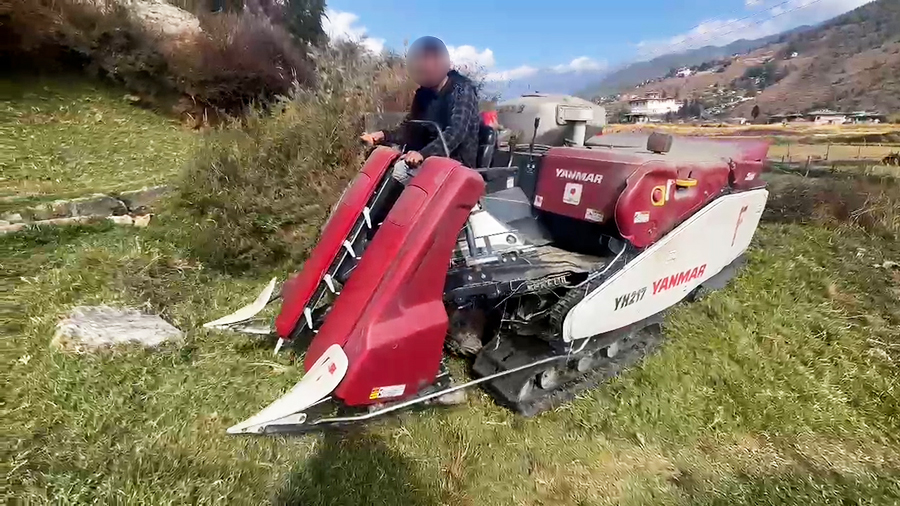
The Lamgong-Wangchang’s Member of Parliament raised concerns about aging combine harvesters. He said it is delaying the paddy harvest in Paro due to frequent breakdowns and its shortage. He urged the government to help farmers purchase subsidised machinery for individual or group use.
 The Member of Parliament said the Farm Machinery Corporation maintains the machines. But the machines are over 10 years old, and replacements are overdue.
The Member of Parliament said the Farm Machinery Corporation maintains the machines. But the machines are over 10 years old, and replacements are overdue.
He pointed out that the limited number of harvesters and issues with their distribution have even led to disputes requiring police intervention.
“Even when I was young, I saw the government providing machines like power tillers at subsidised rates. If the same could be done for combine harvesters, farmers would be able to maintain the machines for a longer time. Currently, the ones provided by FMCL, which should last around five years, only last two to three years,” said Sonam Tashi, Lamgong-Wangchang MP.
The country has 24 harvesters today, and 21 are operational. And Paro has 20 of them. The agriculture minister said combined harvesters are expensive, costing about Nu 1.5 M each. It is also costly to maintain.
“Operating a combine harvester requires specialised training, and it can only be used for two to three months each year. These factors make private ownership challenging, given the high costs involved,” said Younten Phuntsho, Minister of Agriculture and Livestock.
But possibilities will be explored. Some farmers BBS spoke to find FMCL’s hiring system convenient. They worry that if private individuals are allowed to purchase harvesters, hiring costs may increase.
“It would be difficult if the charges were high. Right now, we just pay about Nu 355 to the FMCL,” said Tshering Om, a farmer from Paro.
“Hiring from the government is convenient. If it’s private, it would become expensive for us. Additionally, with private hiring, those who know the machine owner can harvest their crops sooner, while others may face delays. Currently, FMCL provides the machine to all farmers, regardless of their connections,” said Sangay Wangdi, another farmer from Paro.
“If the rich purchase machines, they may not hire them out, as they have to pay drivers’ salaries. Combine harvesters are only used during one season a year, unlike trucks, which can be used year-round. This makes private ownership less practical,” said Dorji, also a farmer from Paro.
Meanwhile, the minister said that discussions are ongoing with the Japanese government to procure more combine harvesters.
Samten Dolkar & Namgay Wangchuk
Edited by Tandin Phuntsho








